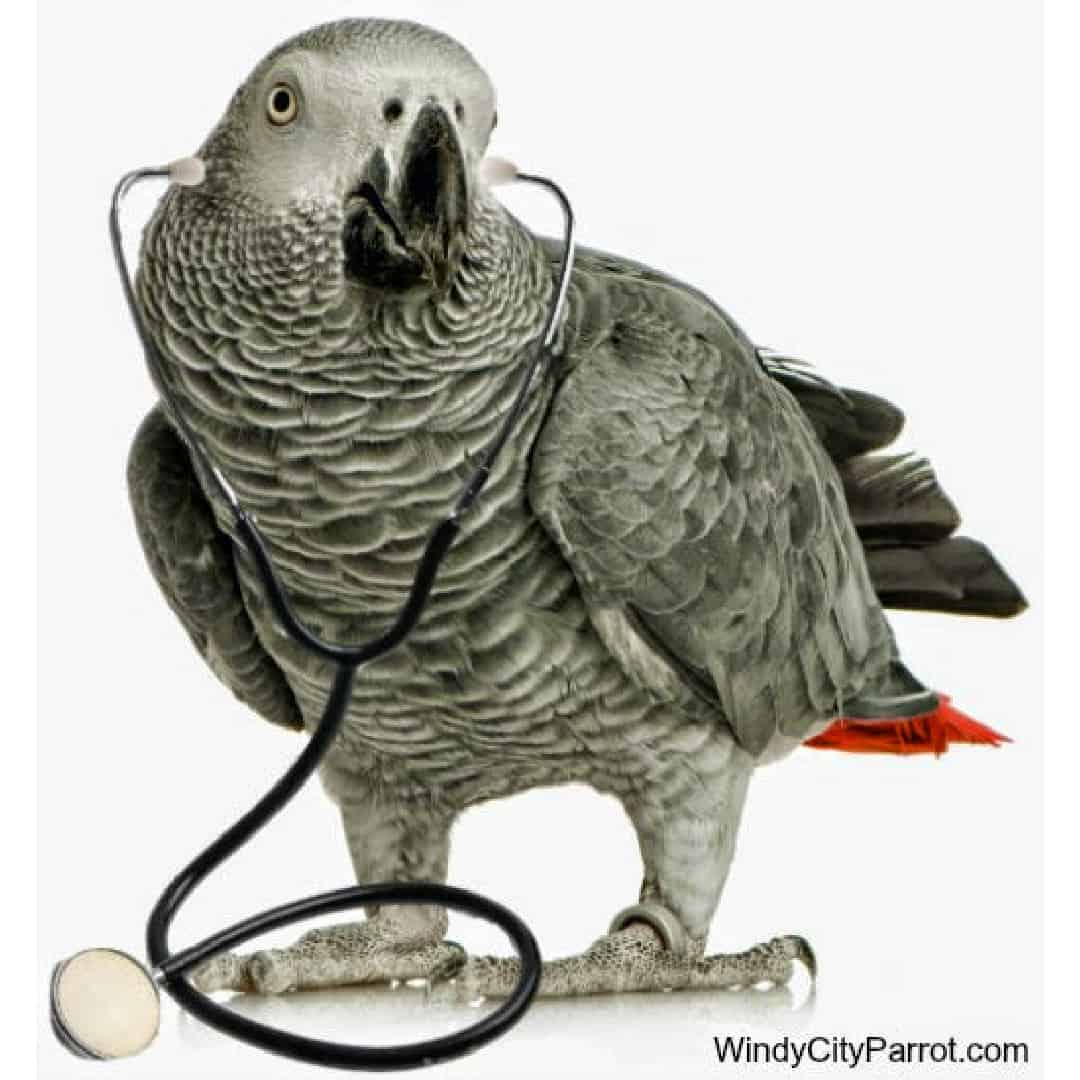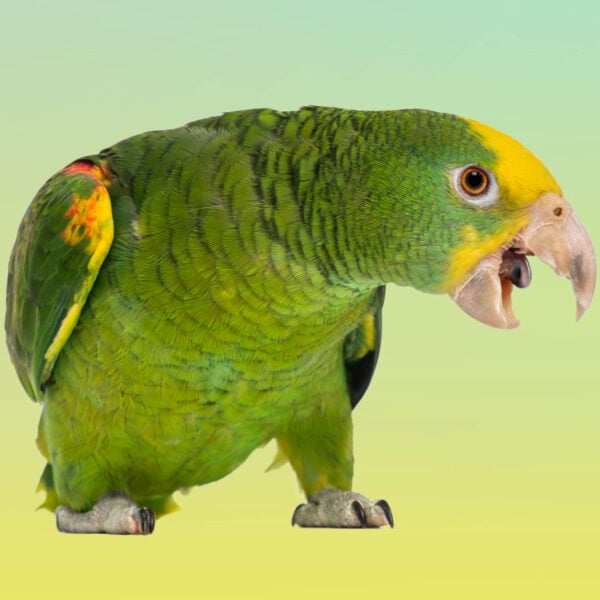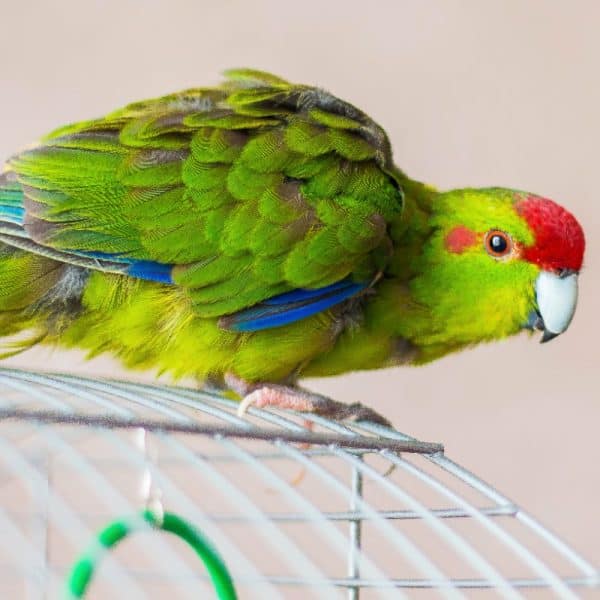Last Updated on by Mitch Rezman
Caring for a pet bird involves more than just providing food and water.
These feathered friends require specialized attention and care to ensure they live healthy, happy lives.
As bird enthusiasts, we understand the nuances of avian care. In this comprehensive guide, we’ll share eight essential tips to help you provide the best healthcare for your pet bird.
Understand Your Bird’s Species-Specific Needs**
Each bird species has unique requirements.
From diet to habitat, understanding these needs is crucial.
Research your bird’s natural habitat and try to mimic it as closely as possible in your home.
We recently posted a comparison between lovebirds and parrotlets.
As an example, lovebirds like to play with toys hung on the walls of the birdcage.
Parrotlets prefer more centralized bird toy placement.
Nutrition: More Than Filling Up a Dish Daily.
A well-balanced diet is vital for your bird’s health. Seeds alone might not/won’t cut it.
Incorporate a variety of foods like fruits, vegetables, and specially formulated pellets. Keep in mind, though, that not all human foods are bird-friendly.
Weigh your Bird Regularly
Just like cats and dogs, birds need regular check-ups too. An avian veterinarian can spot health issues early but can also be expensive.
One of the best ways to monitor your bird’s health I to weigh it regularly ~ weekly ~ monthly your choice.
How easily weigh any bird ~ video
A rapid decline or increase in weight can be a good indicator of illness and signal it’s time for a vet visit.
Mental Stimulation: Keep That Bird Brain Busy
Boredom can lead to destructive behavior or even depression in birds. Toys, puzzles, and regular interaction keep their minds sharp.
Rotate toys frequently to maintain interest and consider training sessions to engage their intelligence.
Cleanliness is Next to Birdliness
Maintain a clean environment for your bird. Regularly clean their cage, perches, and toys.
Clean and disinfect (if possible) the cage weekly to prevent bacterial and fungal growth. A dirty cage is not just unsightly; it can be a breeding ground for diseases.
Poop on birdcage perches can transfer to your bird’s feet. When they clean their zygodactyl feen with their beaks they risk bacterial infections in their mouths.
Feather Care: More Than Just Pretty Plumage
Birds preen themselves to keep their feathers in top condition. However, they sometimes need a little help. Offer a shallow dish of water or a gentle misting for them to bathe. Monitor their feathers for signs of stress or illness, such as plucking or bald spots.
Social Interaction: Flock Together
Birds are social creatures. They thrive on interaction, both with their human families and, if possible, with other birds.
Build trust with your bird by “fly to me” exercises ~ video
Spend time talking to your bird, teaching it tricks, or simply hanging out together.
If you have only one bird, consider getting a mirror or even a second bird for companionship.
Safety First: Create a Bird-Friendly Home
Make your home a safe haven for your feathered friend.
Keep windows and doors closed, remove toxic plants, and ensure no small spaces where they can get stuck.
A Better Bird Ep 13 How Bird Proof Is Your Home ~ video
Be mindful of other pets in the home, as even the friendliest cat or dog can pose a threat to a small bird.
In conclusion, providing healthcare for your pet bird involves more than the basics.
It requires a holistic approach that considers their dietary, medical, mental, and social needs.
By following these eight tips, you’re on your way to ensuring your bird lives a long, healthy, and happy life.
Written by Mitch Rezman and the Windy City Parrot Content Team
Approved by Catherine Tobsing
Author Profile
Latest entries
 Feeding Exotic BirdsDecember 29, 2025How to Switch or Convert Your Bird From Seeds to Pellets: Real-Life Case Studies and Practical Guidance
Feeding Exotic BirdsDecember 29, 2025How to Switch or Convert Your Bird From Seeds to Pellets: Real-Life Case Studies and Practical Guidance Feeding Exotic BirdsDecember 16, 2025A Practical, Budget-Smart Guide to Feeding Birds Well
Feeding Exotic BirdsDecember 16, 2025A Practical, Budget-Smart Guide to Feeding Birds Well Bird EnviornmentsDecember 7, 2025Understanding Budgie Cage Bar Orientation: Myths, Realities & Practical Solutions for Vertical-Bar Bird Cages
Bird EnviornmentsDecember 7, 2025Understanding Budgie Cage Bar Orientation: Myths, Realities & Practical Solutions for Vertical-Bar Bird Cages Feeding Exotic BirdsDecember 5, 2025How Dr. T.J. Lafeber Rewrote the Future of Pet Bird Nutrition
Feeding Exotic BirdsDecember 5, 2025How Dr. T.J. Lafeber Rewrote the Future of Pet Bird Nutrition


